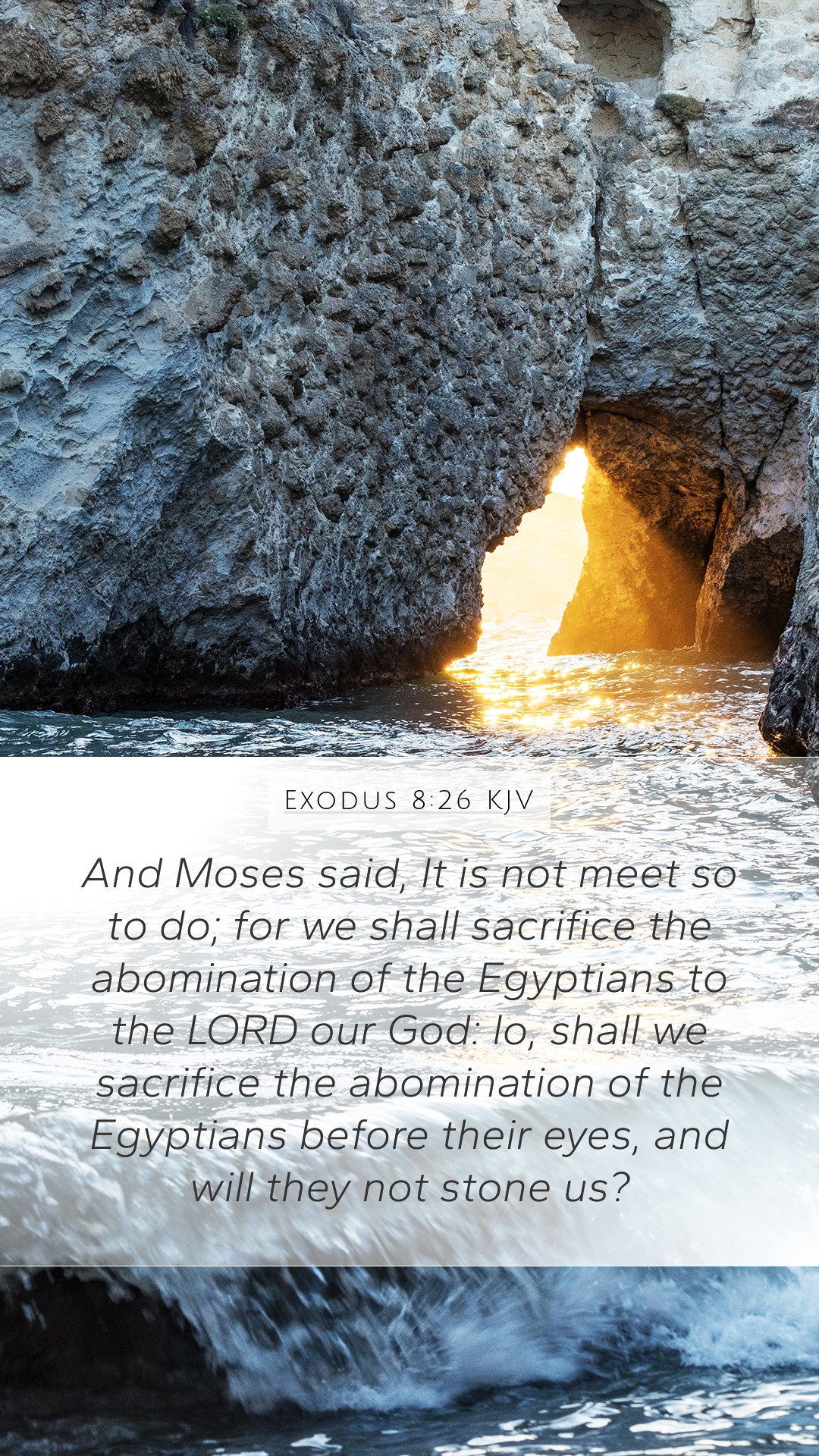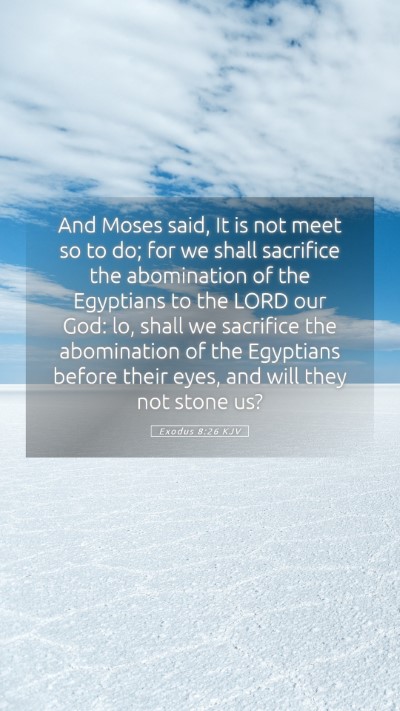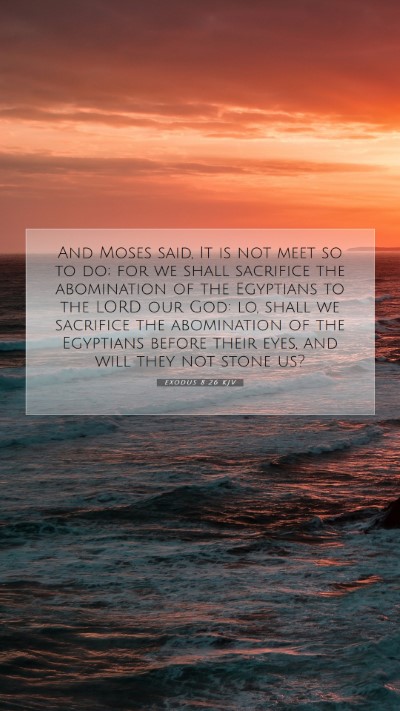Bible Verse Explanation: Exodus 8:26
Verse: Exodus 8:26 states, "But Moses said, 'It would not be right to do so, for the offerings we sacrifice to the LORD our God would be an abomination to the Egyptians. If we sacrifice offerings abominable to the Egyptians before their eyes, will they not stone us?'"
Overview of Exodus 8:26
In this verse, Moses is addressing Pharaoh's request to worship the Lord in the land of Egypt. He articulates a significant concern regarding the nature of their sacrifices and the perception of the Egyptians towards them. This verse encapsulates both the cultural tensions between the Israelites and the Egyptians and foreshadows the impending liberation of the Israelites from bondage.
Significance and Commentary
This verse is rich in biblical meaning and invites various interpretations:
- Cultural Sensitivity: Moses shows an acute awareness of the Egyptians' religious beliefs and values, identifying that their offerings would be perceived as offensive. This demonstrates a necessary sensitivity that is required in inter-cultural engagements.
- Fear of Repercussions: The mention of being stoned indicates the severity of the Egyptian response to actions they found offensive. This fear reflects the dire situation faced by the Israelites under bondage.
- Obedience to God: The underlying theme of obedience to God's commands comes forth in Moses’ reluctance to compromise the purity of their worship, despite external pressures.
Insights from Commentaries
Matthew Henry's Commentary: Matthew Henry emphasizes the necessity for the Israelites to maintain their distinct identity as God's people. He notes that their worship should not only be accepted by God but also should be done without causing offense to the Egyptians, thus safeguarding their mission and their lives.
Albert Barnes' Notes: Barnes provides further insight into the historical context, explaining that the Egyptians viewed animal sacrifices as sacred due to their cultural beliefs. He underscores that performing such sacrifices publicly in Egypt could incite serious backlash and violence against the Israelites, stressing the tactical wisdom in Moses’ response.
Adam Clarke's Commentary: Clarke discusses the duality of the Israelites' worship; that it is rooted in their covenant with God, yet vulnerable to misunderstanding in a foreign land. His analysis circles back to the importance of understanding the local customs of the land in which one resides while remaining faithful to one’s beliefs.
Application of the Verse
This verse serves as a reminder of the importance of understanding the cultural context of worship and the potential implications it may have in a diverse world. Both Moses' leadership and careful negotiation reflect how believers today should approach their faith in public spaces, ensuring respect and understanding for those around them while remaining true to their convictions.
Bible Cross References
- Exodus 3:18 - Moses' mission to go into the presence of Pharaoh.
- Exodus 12:26-27 - Further instructions regarding the Passover that deals with the significance and context of sacrifices.
- Deuteronomy 12:31 - God's command regarding the practices of the nations around Israel.
Conclusion
Exodus 8:26 encapsulates profound themes essential for biblical understanding. It encourages readers to engage with scripture analysis, emphasizing both the need for cultural sensitivity and the need for faithful adherence to God’s commands. This engagement is a vital part of Bible study resources as it deepens the understanding of scripture and its application in various settings.
Exploring the meaning of this verse and its implications provides valuable insights for anyone engaging in Bible study groups, online Bible study, or those using Bible study tools and resources. Such an understanding enriches the interpretation and application of scripture in daily life.


